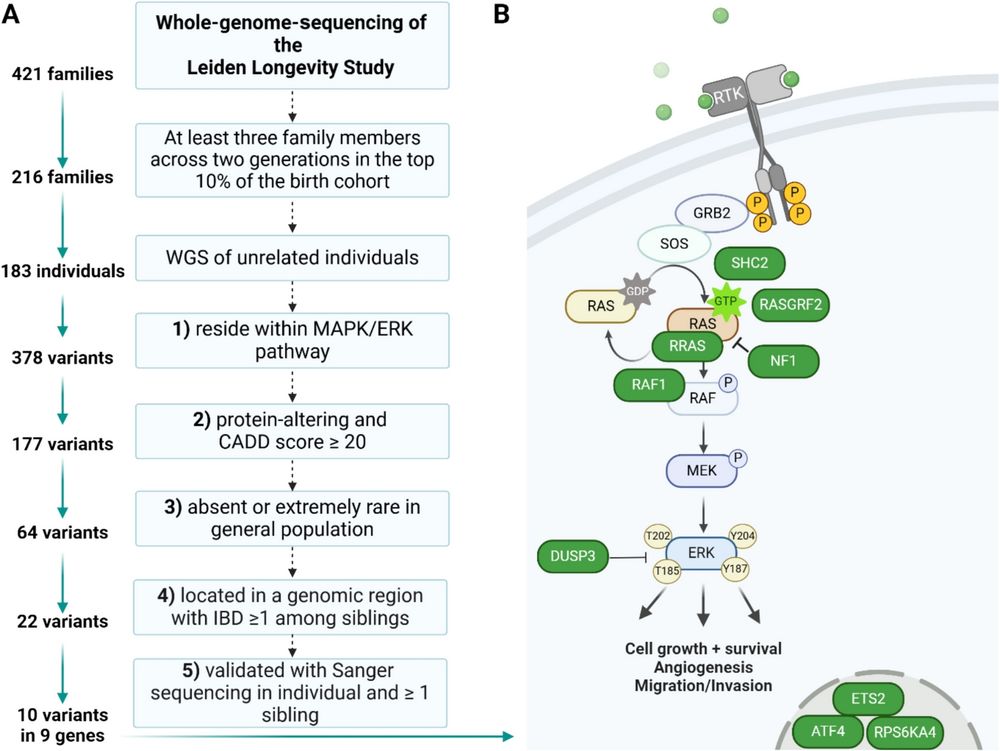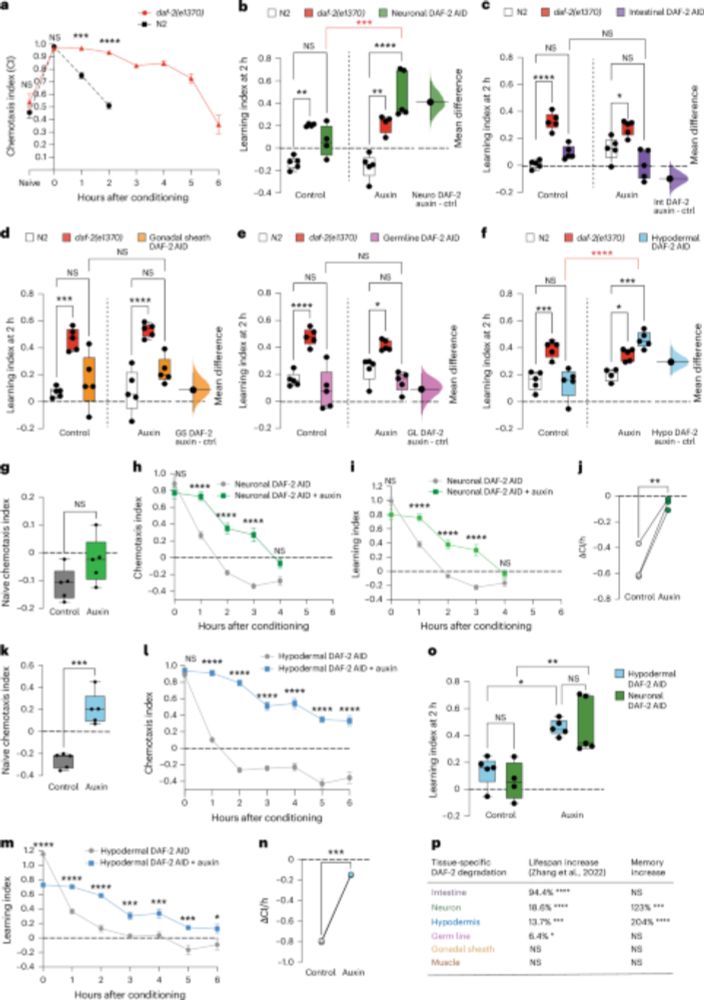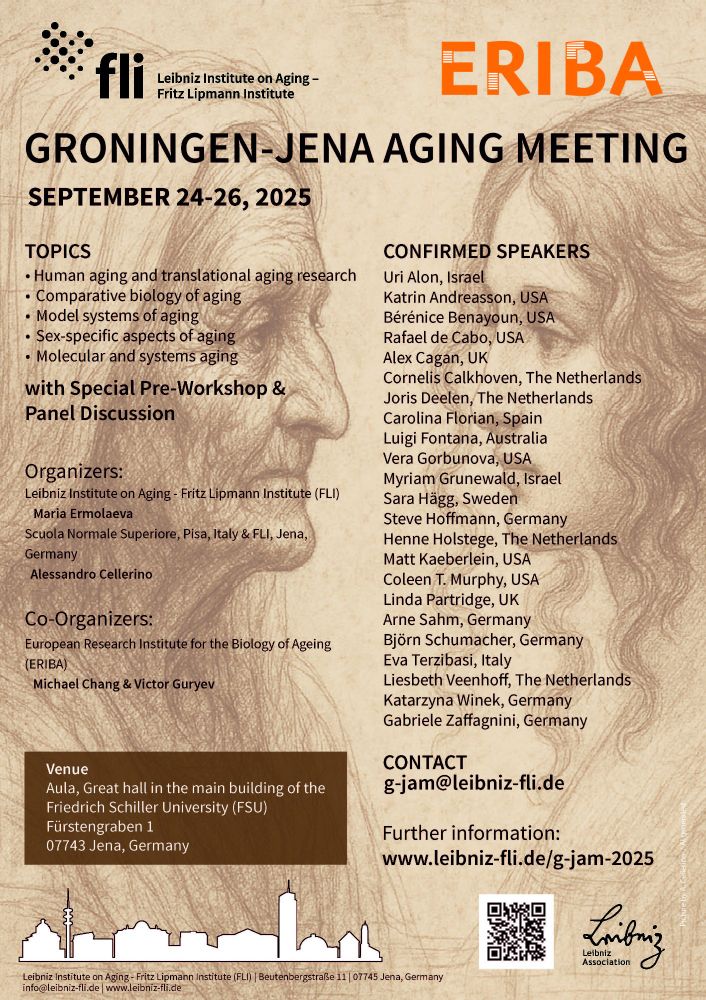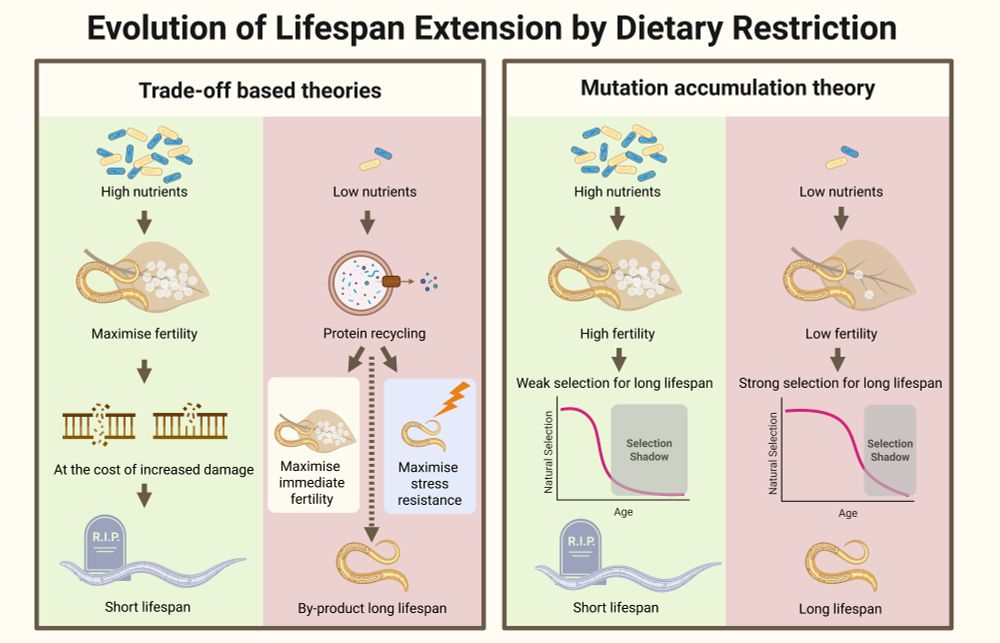Maria Ermolaeva
@mariaermolaeva.bsky.social
380 followers
150 following
64 posts
Group Leader @Leibniz Institute on Aging. Discovering novel and unconventional interventions for healthy aging. Interested in metabolism, stress responses and microbiome.
Posts
Media
Videos
Starter Packs
Reposted by Maria Ermolaeva
Joris Deelen
@jorisdeelen.bsky.social
· May 29

Functional characterisation of rare variants in genes encoding the MAPK/ERK signalling pathway identified in long-lived Leiden Longevity Study participants - GeroScience
Human longevity, which is coupled to compression of age-related disease, is a heritable trait. However, only few common genetic variants have been linked to longevity, suggesting that rare, family-spe...
link.springer.com
Reposted by Maria Ermolaeva
Reposted by Maria Ermolaeva
Coleen Murphy
@ctmurphy1.bsky.social
· Jun 4
Nature Aging
@nataging.nature.com
· Jun 2

Body-to-brain insulin and Notch signaling regulates memory through neuronal CREB activity - Nature Aging
Zhou, Novak and colleagues identify that the Caenorhabditis elegans hypodermis, a peripheral liver-like metabolic tissue, regulates memory via insulin/IGF-1 and Notch signaling, and show that activati...
www.nature.com











